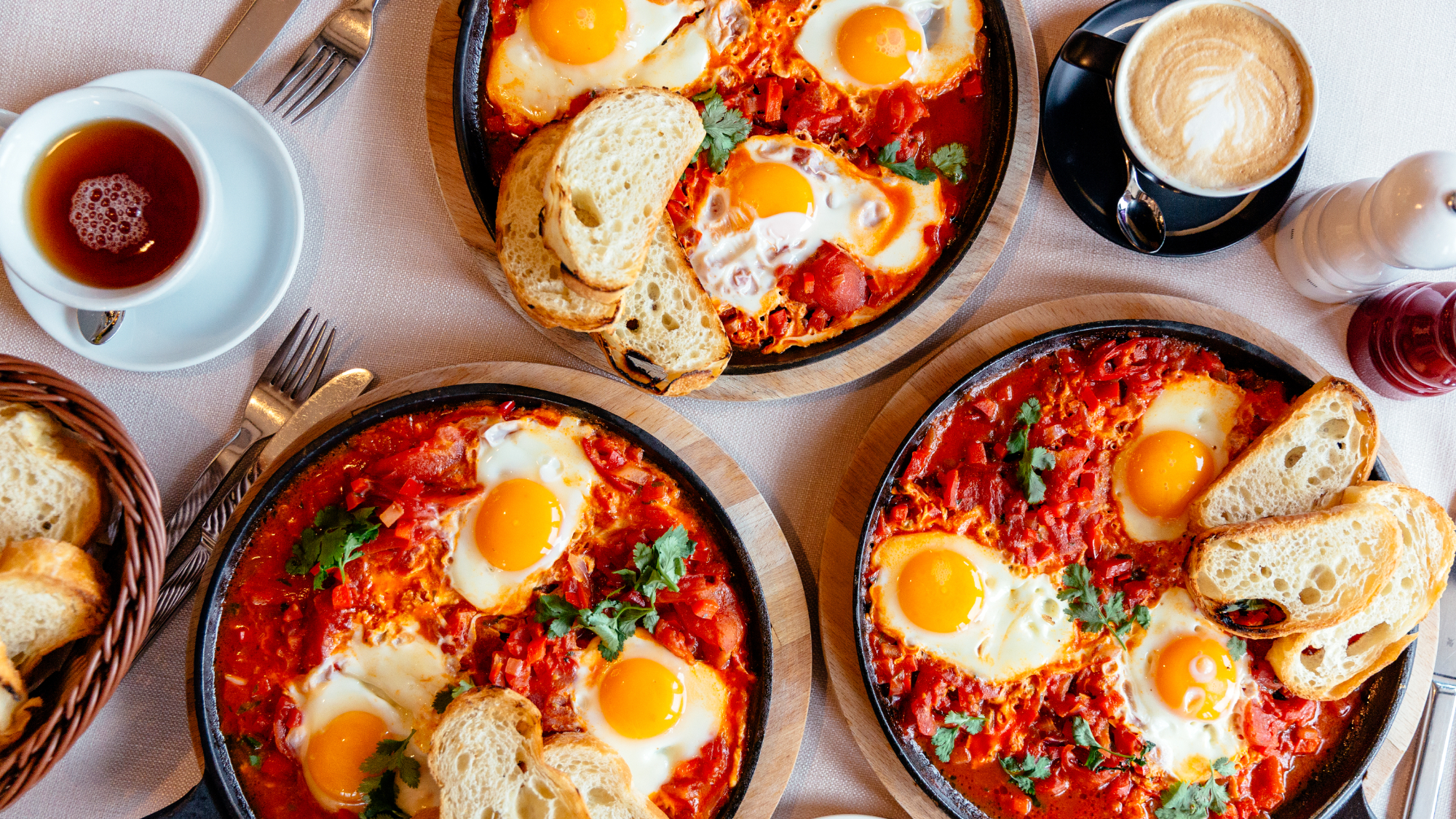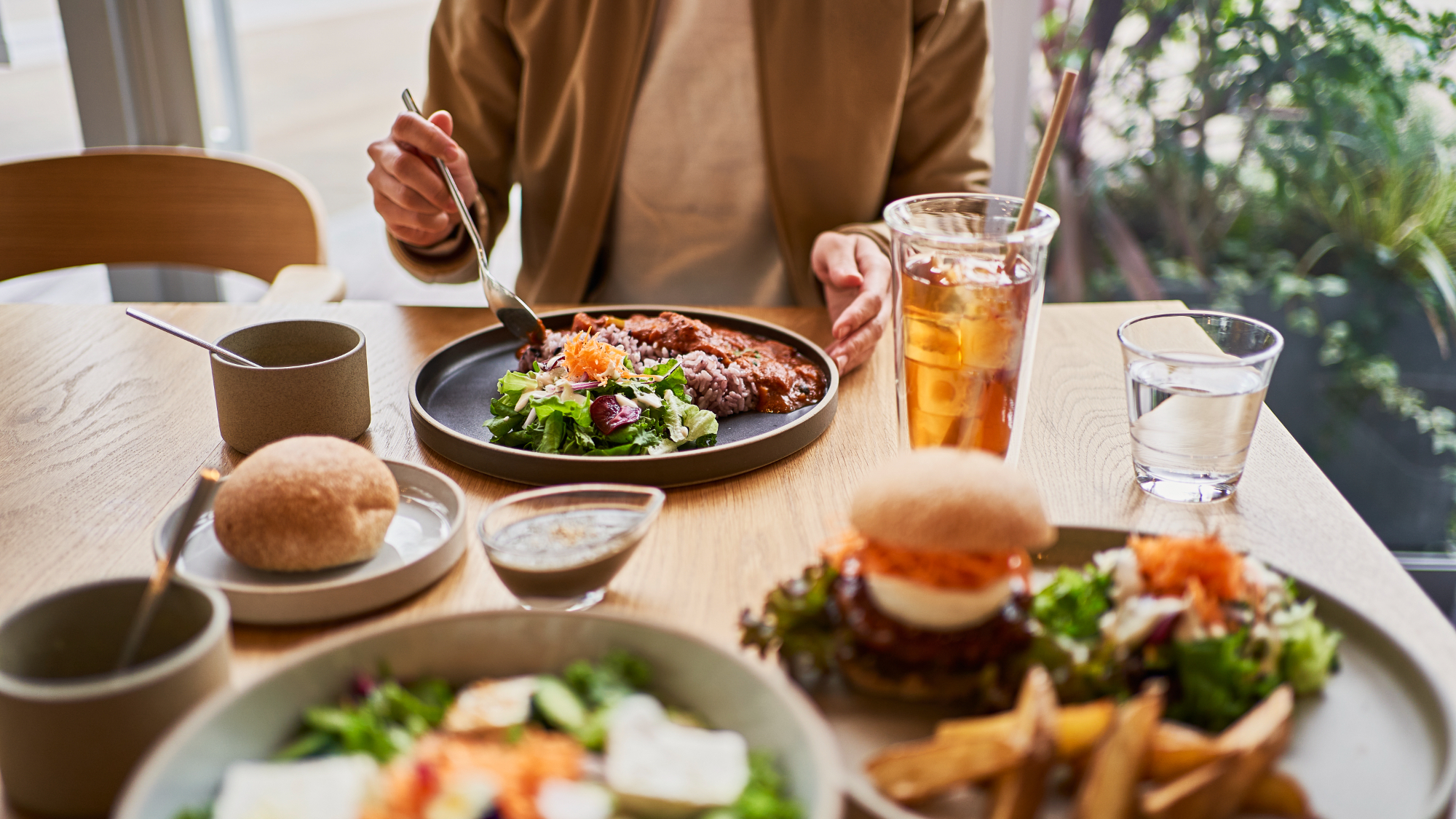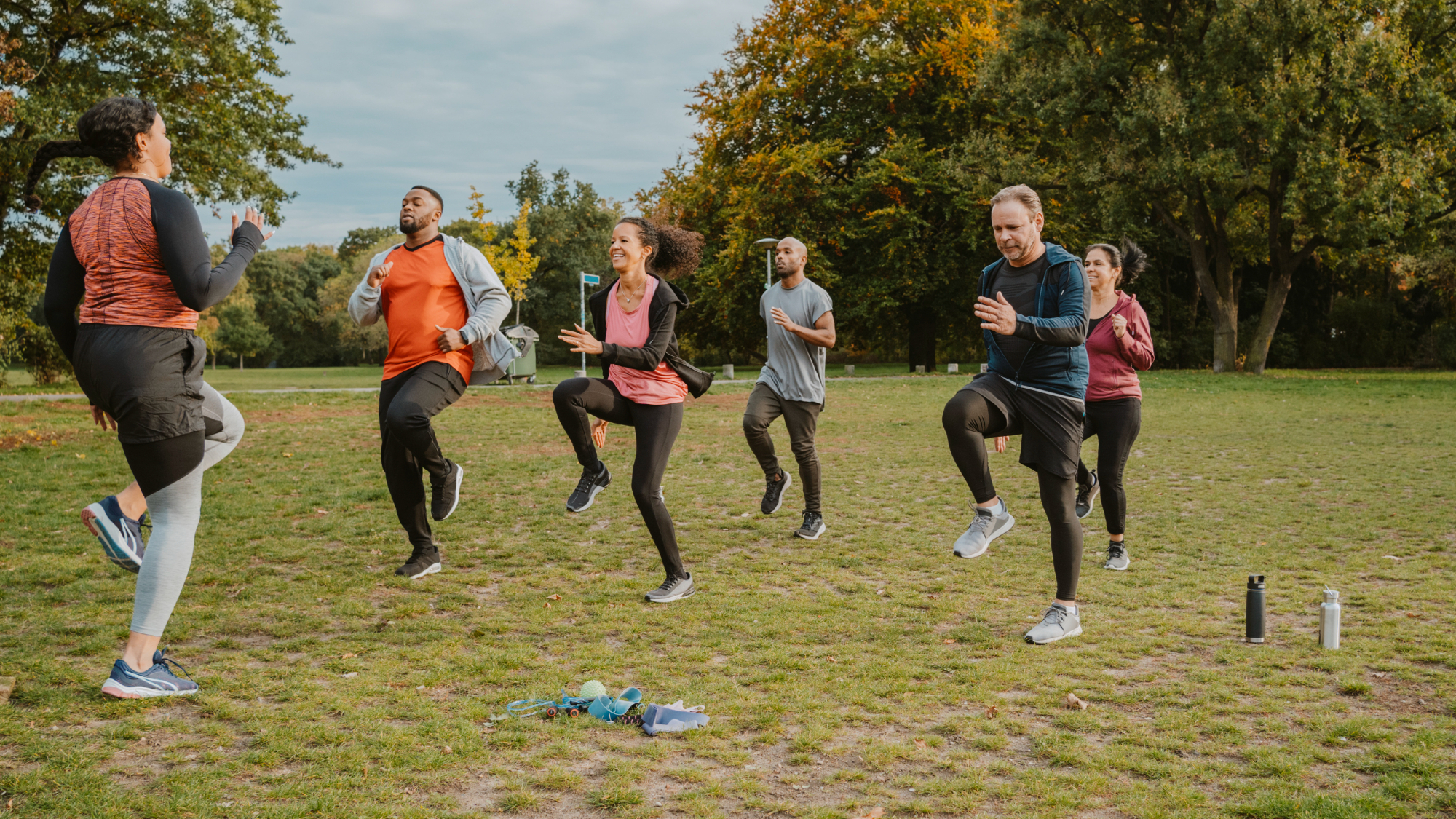Vegan vs vegetarian: what's the difference?
What’s the difference between a vegan vs vegetarian diet? Experts decipher the differences


Vegan vs vegetarian — you might have heard of the two diets, but what are they and how do they differ? Put simply, both vegans and vegetarians choose not to eat meat or fish. But unlike vegetarians, vegans also avoid eating animal by-products, such as eggs and honey, and dairy products, like milk and cheese.
In an ideal world, each of our diets would give us all the nutrients we need to thrive. But if you are living a meatless diet, like being vegan vs vegetarian, it can mean you miss out on important vitamins like iron, zinc and B vitamins — all of which can be found in forms of protein, like meat.
This is why some vegans and vegetarians tend to add the best B12 supplements to their diet, as these tablets can help to support your overall wellness and fight against B12 deficiency which can cause loss of appetite, fatigue and weight loss.
Although veganism vs vegetarianism differ, there are also a lot of similarities. To get to the bottom of the differences, we spoke to dieticians to find out the nutritional benefits each diet can bring.
Vegan vs vegetarian: what is a vegetarian diet?

A vegetarian diet can be defined as a diet that does not contain meat. This could be for religious, moral and/or health reasons. Or it could just be down to just preference. This means a vegetarian diet consists of vegetables, fruit, nuts, grains and, if preferable, eggs and dairy products.
But as Grace Derocha RDN, CDCES, MBA, registered dietitian and national spokesperson for The Academy of Nutrition and Dietetics notes: “There are several different types of vegetarians.”
This includes:
Start your week with achievable workout ideas, health tips and wellbeing advice in your inbox.
- lacto-ovo vegetarians, who eat both eggs and dairy products
- lacto vegetarians, who eat dairy products but not eggs
- ovo vegetarians, who eat eggs but not dairy products

Grace Derocha is a registered dietitian nutritionist health coach at Marquee Health and is a spokesperson for the Academy for Nutrition and Dietetics. Derocha was previously a certified diabetes educator at St. John Children’s Center in Detroit and the Detroit Area Agency on Aging. Derocha is also a fitness instructor and former dancer.
Vegan vs vegetarian: what is a vegan diet?

A vegan diet can be defined as a diet that contains no foods derived from animals including meat, eggs, honey and dairy products, like milk and cheese. Nowadays, veganism has become a lifestyle.
This means some people who follow a vegan diet might not just refrain from foods derived from an animal. They might also abstain from using animal products, like leather or silk, which can be made to create shoes and handbags.
Although it might seem daunting to entirely cut out all dairy, eggs, fish, and meat, there are plenty of flavor-packed recipes in the best vegan cookbooks. Some even use meat replacements, like soya protein or tofu.
Vegan vs vegetarian: What are the differences?
Both plant-based diets avoid meat and fish, but there are other differences between the two. Therefore, a vegan diet means:
- Excluding all animal products (including honey, eggs and dairy products) and eating plant-based foods, like vegetables, fruits, and nuts.
While a vegetarian diet means:
- Going meatless. But you might still eat honey, eggs, and dairy products depending on your preference.
Vegan vs vegetarian: which is best for building muscle?

Along with lifting weights, or shifting your own bodyweight, your diet is also an incredibly important factor when it comes to building muscle. That’s because your body needs to repair the damage inflicted on the muscles through strength training.
And when it comes to doing so, protein is the primary macronutrient that your body uses for growth and repair. So out of a vegan vs vegetarian diet, which has more naturally occurring protein in it?
Derocha says: “A vegetarian diet has more flexibility, especially with the different types that offer more potential nutrition to help support building lean muscle mass.” But that’s not to say you can’t build muscle while living a vegan diet.
In an article published in the European Journal of Clinical Nutrition, researchers found that following a vegan diet had no detrimental impact on endurance and muscle strength in healthy young lean women.
In fact, they found that those who were vegan had a ‘significantly higher’ estimated VO2 max and submaximal endurance time to exhaustion compared with omnivores.

Kristen Stavridis is a qualified nutritionist based in London and has a passion for gut health. Her aim is to help women make better choices with diet and lifestyle. She has written for brands like PureGym, Cosmopolitan, Sporty & Rich and appeared on BBC radio spreading the word about a healthy gut and overall well being.
So no matter whether you are following a vegan vs vegetarian diet, qualified nutritionist Kristen Stavridis, who works with the likes of nutritional company Arbonne, says that when it comes to building muscle, the main thing to prioritize is good quality proteins.
Soy, lentils, whole grains and chickpeas are great sources of vegan protein. “So if you ensure you consume these sources of protein whilst on a vegan diet, it will help healthy muscle building,” Stavridis adds.
“Plus, nowadays, there is an increasing amount of vegan protein products emerging due to increased popularity, which contain other forms of protein such as pea, cranberry and rice protein which are all vegan.
“I’d advise those on a vegan diet to consume as much protein as possible in other forms whilst having a vegan diet. To support a higher intake of protein into your diet, I'd advise taking vegan protein.”
Vegan vs vegetarian: which is best for weight loss?

According to Stavridis, a vegan diet can be effective for weight loss for many people. “This is due to people with vegan diets being more likely to consume even more greens, legumes and whole plant foods which are high in fiber,” Stavridis says.
“This is key for weight management and overall health as it helps to keep us feeling full in-between meals,” she adds. And one review, published in the Diabetes, Metabolic Syndrome and Obesity journal, agrees.
In the review, 19 out 19 studies that were included all reported weight reductions. Researchers said the weight reduction in those living a vegan diet could be explained by an ‘increased intake of fiber, polyunsaturated fats and plant proteins, including a reduced intake of energy, saturated fats and animal proteins’.
However, Derocha argues that no matter whether you follow a vegan or veggie diet, both can still be beneficial for weight loss. She adds: “Naturally, a vegan or vegetarian diet offers a lot of nutrient dense food when making the right choices to include fruits, vegetables, whole grains, nuts, seeds, beans and legumes.”
But of course, weight loss looks different for everybody. Along with following a well-rounded diet, it’s also important to exercise sustainably. According to current US physical activity guidelines, adults should get at least 150 minutes of moderate or 75 minutes of vigorous exercise each week.
Many people pit diet vs exercise, but it’s important to find a balance between both; exercising regularly and ensuring you get enough nutrients in your diet. One of the top ways you can do this is by adding one of the best protein powders for weight loss to your routine.
Becks is a freelance journalist and writer with more than 7 years of experience in the field. She writes health and lifestyle content for a range of titles including Live Science, Top Ten Reviews, Tom’s Guide, Stylist, The Independent, and more. She also ghostwrites for a number of Physiotherapists and Osteopaths.
Health has been a big part of Becks’ lifestyle since time began. When she’s not writing about the topic of health, she’s in the gym learning new compound exercises. And when she’s not in the gym, she’s most probably reading.
